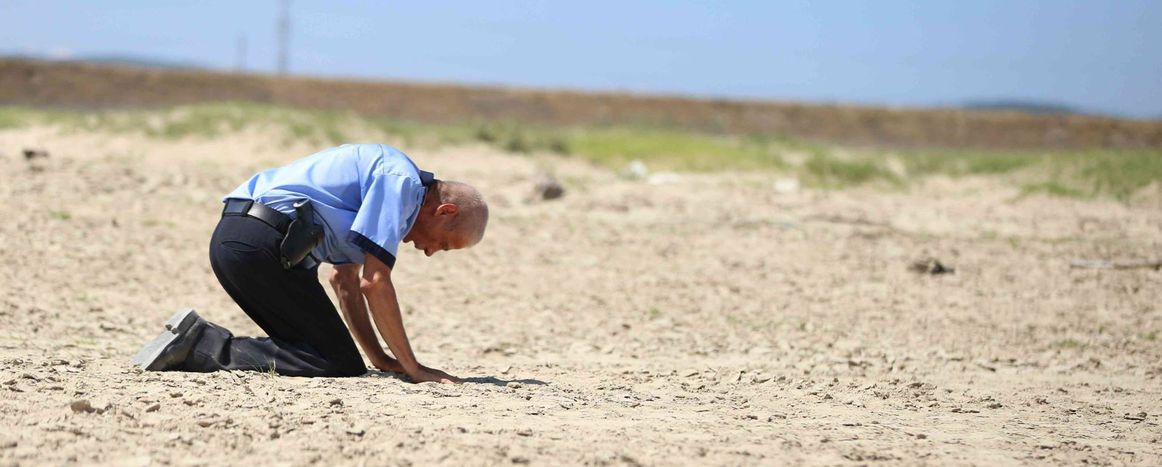
Bogdan Mirică's “Dogs” leaves overly familiar bite marks
Published on
The winner of the FIPRESCI Award at 2016's Cannes Film Festival, Dogs - the debut film by Romanian director Bogdan Mirică - is playing this week at the Torino Film Festival. Sadly, it's a clumsy adaptation of material that's been better done elsewhere.
One of the biggest problems Balkan filmmakers have faced since the fall of Communism, especially those in Bulgaria and Romania, has been financing. This is why opening credits are usually stuffed with the names of multiple contributing studios, government and non-government institutions, associations and even companies which have nothing to do with the film industry and thus have no creative input on the production itself. All the while, self-proclaimed auteurs-turned-screenwriters turn directors as well, and their ideas and emotions run unchecked; until finally, things get edited out that, instead of making a coherent story move forward, end up creating gaping plot-holes and take away from character development.
Such is the case of Dogs ("Câini" in the original Romanian), the debut feature of director Bogdan Mirică. His screenplay took four years to complete, but Mirică has left massive amounts of early drafts and filmed material on the cutting-room floor. In all fairness, Mirică’s intentions never included having an actual plot or narrative, but rather it was about his feelings and emotions, which were often "indistinct and unclear," according to at least two interviews he gave earlier in 2016.
Dogs tells the story of city-educated slick, Roman (Dragoș Bucur) as he arrives in a nondescript village near Tulcea, on the Romania/Ukraine border. He has inherited vast hectares of land and a ramshackle of a house from his grandfather, who, as we soon discover, was also the local "godfather," known as "Uncle Alecu." Roman intends to sell the property, for which he has brought along his friend, Sebi (Emilian Oprea) to make sure the paperwork is solid. Things take turn for the sinister when Sebi goes missing and the new landowner is advised to either return to the safe comfort of the big city and let lawyers handle the sale for him, or abandon it altogether.
We are given a “taste” of what’s to come from the painfully slow opening scene (suspiciously reminiscent of material done better elsewhere), and then systematically let down by having key events happen off-screen. Herein lies a major fault of the film: it repeatedly violates the golden "show, don’t tell" rule by having protagonists and antagonists do long verbal expositions. It also treats us to the everlasting curse of Balkan cinematic culture: long, protracted takes; single-angle, static shots, lingering forever, while nothing much happens onscreen, often for minutes at a time (except that annoying one time, which is supposed to play for dark humour). There’s also an old cop, quickly approaching permanent retirement by way of lung cancer and a German shepherd, called Police, causing a lot of missed or oversold jokes (“Here’s the Police – the man, not the dog”).
On the positive side, Vlad Ivanov (whom international audiences will surely remember from 4 Months, 3 Weeks and 2 Days), is mildly entertaining as Samir, Uncle Alecu’s lieutenant and self-proclaimed leader of the countryside evildoers. He gets to deliver both the best and the most preposterous lines of dialogue: "I’m afraid of God... but God is afraid of me, too." Some of it is even an attempt at social commentary: "We do a little bit of fighting, a little bit of killing... If we’re not educated, we get bored," he tells Roman.
But beyond that, plot elements remain shrouded in unnecessary mystery. Some are minor: like how and what exactly are the redneck mobsters trafficking and what other mobster businesses are they into. Others are major, like the reason for the rift between Roman and his girlfriend Ilinca (portrayed by Raluca Produ, who's given shamefully little to do), who comes to visit at the worst possible moment.
One cannot overlook the bad editing. The debutant director apparently missed the class where they taught the importance of establishing shots. The first time we see the entirety of Roman’s inherited house is through the rear windshield of a moving SUV late in the third act, when our protagonist decides to abandon his girlfriend in a most mind-bogglingly illogical move which only serves the film’s grim denouement. The few handheld tracking shots, which only remotely invoke some sort of tension, are poorly squished into even more static shots.
The movie mixes typical characteristics of the eastern European sensibility with forced dialogue and elements clumsily borrowed from the likes of David Lynch (see Blue Velvet) and the Coen brothers. In fact, Dogs was praised and marketed as a Romanian No Country for Old Men. In the end, for a film that took four years to write, was apparently inspired by the director’s own childhood memories and had no particular story to tell, it feels as a suspiciously derivative copy; without the heft, character studies or philosophical depth of its far superior forebearers.



